The Role of AI & Data Analytics in Retail Personalization
In today's AI-driven retail landscape, personalization is king. From healthcare to finance, AI is revolutionizing how businesses tailor experiences. But retail is perhaps where this transformation is most pronounced.
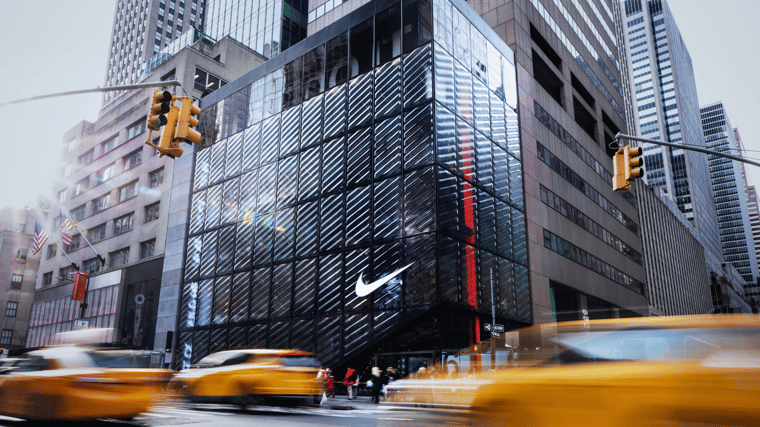 Photo Courtesy of Business Wire, Nike House of Innovations, New York, NY
Photo Courtesy of Business Wire, Nike House of Innovations, New York, NY
With AI technology solutions cropping up across various industries, we are already starting to see AI adoption take various forms based on market factors, business goals, and consumer demand. So while AI use cases may vary by industry and user, there are certain themes we can derive from this age of adoption. In particular, personalization.
Using AI to create more bespoke experiences, whether that is concierge health services from a healthcare provider, personalized investment advice from financial institutions, or recommendation engines that can craft bespoke travel itineraries for travelers. We are still very much in the beginning stages of AI’s ability to personalize services and experiences, but one particular industry where AI-driven personalization could have the greatest ripple effects is retail.
Jump To A Section in This Article
What We Mean When We Refer to "Retail"
Retail Marketplace Snapshot: AI & Personalization
Architectural Innovation Happening in Retail
Supporting Retail Assets in the Era of AI
What We Mean When We Refer to “Retail”
The word “retail” can mean a great many things to many people. Generally speaking however, it is often used to encompass all activities involved in making products or services available to consumers, from sourcing and purchasing items from suppliers, presenting them in a store (brick-and-mortar) or an online platform (e-commerce), and facilitating their purchase.
When we talk about retail, in the CRE sense, we are talking about the physical buildings and spaces responsible for carrying some inventory, creating the in-person customer experience, holding store hours, and representing a brand. It is a very unique kind of tenant-landlord relationship and one that is almost certain to become even more nuanced as AI and retail trends shift the in-store experience.
Marketplace Snapshot: AI and Retail Personalization Popping Up In-Store
Many attribute the decline of retail to COVID, but in fact, in-store shopping saw a dramatic decrease in 2017, the year many retail executives refer to as the “retail apocalypse”. In that year, nearly 8,000 brick-and-mortar stores closed their doors, unable to keep up with online shopping and collapsing under the weight of inflated in-store footprints. And while many retailers are still downsizing today because of a decrease in in-store traffic, major retailers are recognizing the growth opportunities in the sector, too.
In a recent qualitative thought leadership piece produced by BJSS, the media team went on a tour through New York’s retail scene to investigate some recent changes happening in store among some major retailers.
What they found was the overwhelming adoption of in-store customization options as a means to differentiate the online and in-person experience and incentives shoppers to visit a physical store.
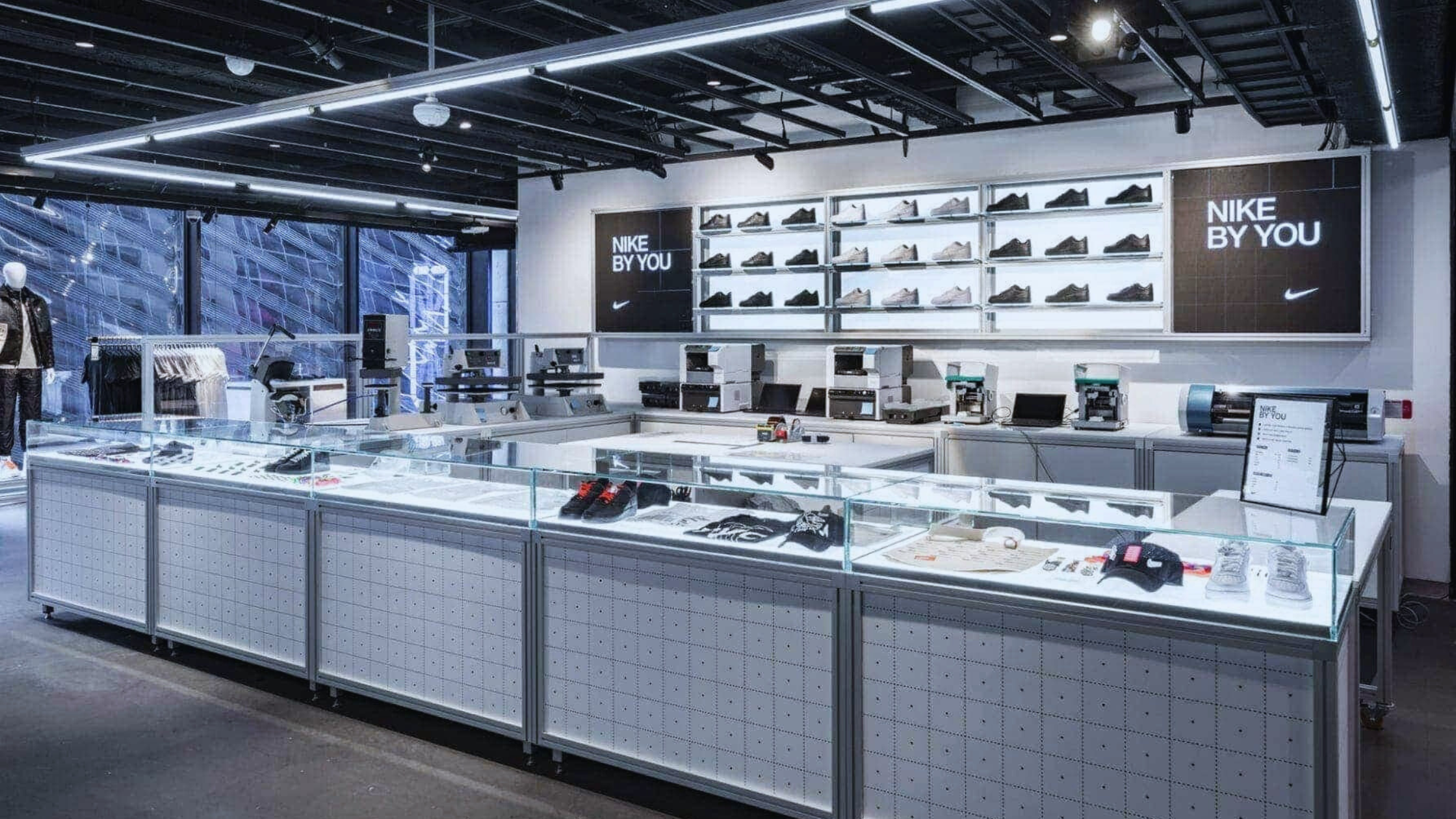
Nike House of Innovation, New York City.
Stores like the Nike House of Innovation feature an immersive basketball court experience where store visitors can try on their preferred shoe and demo the fit and feel by shooting a couple hoops when they first walk in.
To uphold their contribution of personalization in retail, these Nike flagship stores also house an expansive customization counter where Nike wearers can select their favorite features and colors to create a completely original shoe.
There is also an app component called “Store Mode” that allows users to scan product tags and request a try-on from an in-store Nike expert. This is just one example of the lengths these major retailers are going to to change the consumer relationship with the in-store shopping experience.
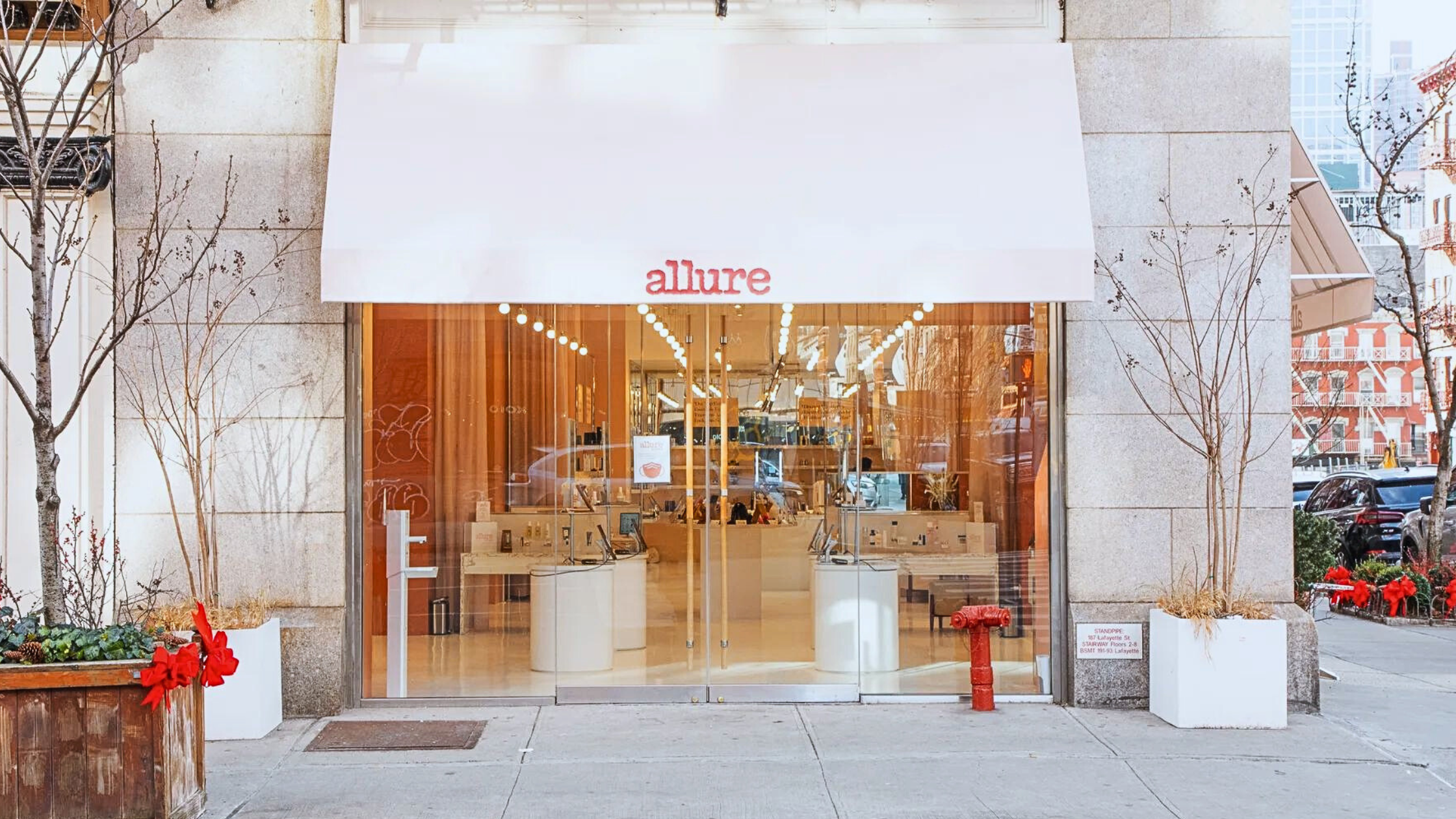
Allure, New York City.
Another retailer called out in the study for their unique interpretation of current retail technology trends was Allure. The beauty brand has seamlessly integrated a heightened in-store spa experience with splashes of innovative technology such as interactive QR codes containing product information as well as the ability to check out on your mobile device while in store.
The moment shoppers walk into the store they are greeted with carefully curated product displays and comfortable seating that evoke a spa-like atmosphere. Smart mirrors placed strategically throughout the store also allow shoppers to interact with products in an innovative way, bringing the digital product catalog to life in stores.
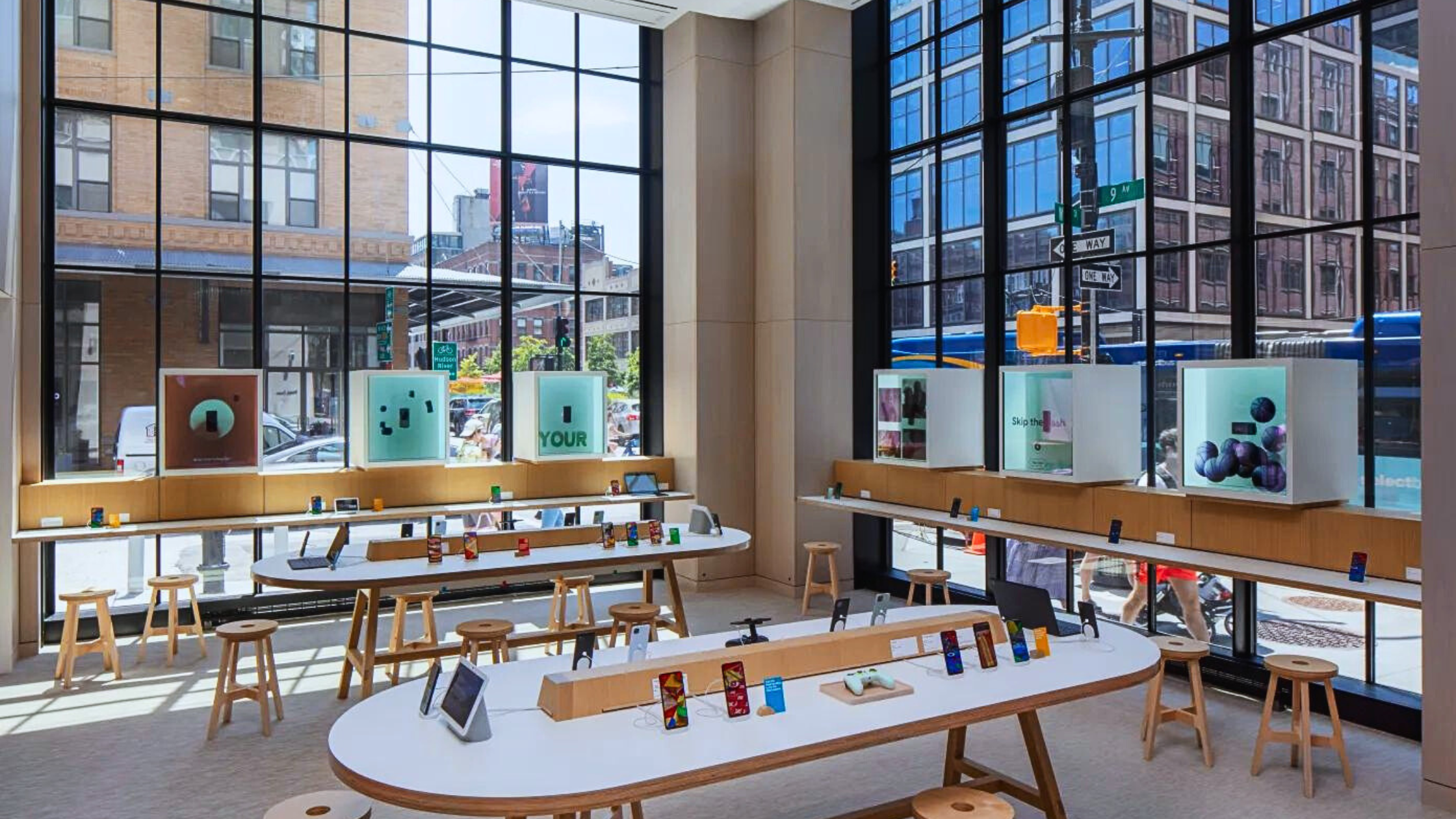
The Google Store in Chelsea, New York City.
It might not be surprising that, in a thought leadership piece about retail technology trends, Google comes up for its exciting tech innovation in stores. The first Google Store opened in New York City in 2021 to sell the conglomerate’s hardware and software.
Using interactive and immersive rooms, the Google Store in Chelsea demonstrates the various ways Google’s technology ecosystem fits together in the home, subtly encouraging in-store visitors to download additional Google products or purchase Google technology like Nest, Pixel phones, and more. BJSS writes in its informative whitepaper, “Think IKEA.”
It’s a very interesting use of technology and retail personalization to sell hardware and software in a retail setting and it will all but certainly encourage other retailers with both physical and digital services to follow suit, demonstrating how digital AI solutions for our homes, cars, education, etc. fit into our physical lives.
Retailers Standing Out for Architectural Innovation
In addition to retail technology trends some retailers are taking a more physical approach to demonstrate being on the cutting edge. These retailers are not only reviving the in-store shopping experience, but they are also impacting the way CRE professionals manage retail leases and support retail owners.
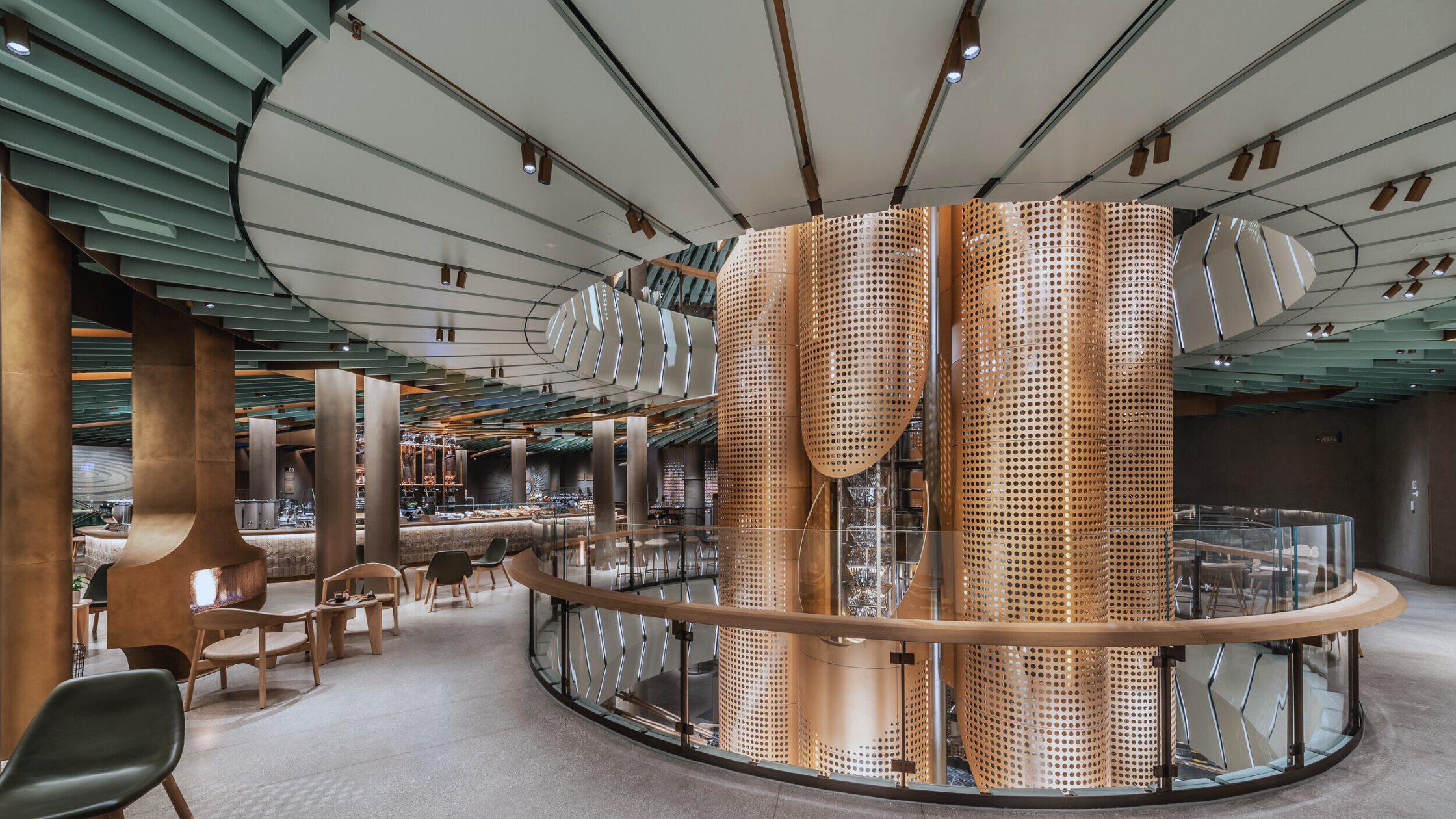
Starbucks Reserve, Chicago.
What was once the site of Crate & Barrel on Michigan Ave is now a five-story, multi-sensory experience brought to in-store patrons by none other than Starbucks. The Chicago Roastery in-store experience is built on architectural elements such as the Cask, a 56-foot sculpture that delivers freshly roasted beans throughout the roastery and the “clacker board” with information about that day’s roast.
Retailers may not be on the financial level of a multinational retailer like Starbucks, but the ability to alter the physical appearance of a store to reflect a brand’s personality will all but certainly be commonplace as retailers transform their in-store shopping experiences.
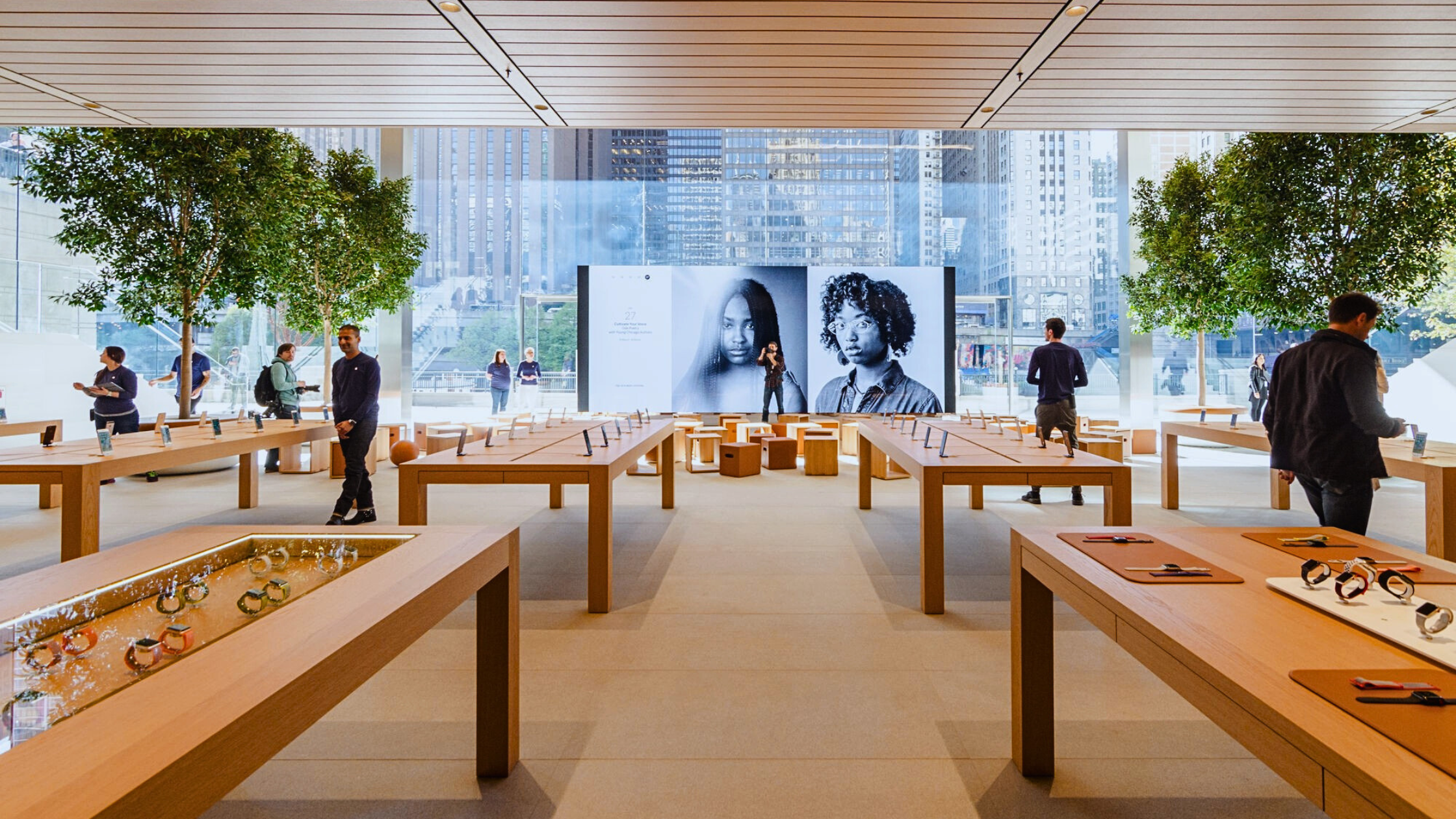
Apple Flagship Store, Chicago.
Another beautiful example of retailers maximizing their commercial footprint is Apple with the unveiling of a beautiful, state-of-the-art retail building along the Chicago river in Chicago, IL. Unlike Allure and Nike the draw to this flagship isn’t necessarily the promise of walking out with a new piece of technology, but rather the Apple Flagship Store is a stop on many tourists’ lists because it is an architectural spectacle, in its own right.
Nestled between some of the most historic and iconic Gothic buildings in Chicago, Apple Michigan Ave features spotless, glass sheets that prop up white oak slats that comprise the bottom of the roof, conveniently shaped like a MacBook Air. The focus of this in-store experience is less about selling products and more about encouraging visitors to hang out and learn something new. It’s just another example of a leading retailer reimagining the physical space of their store.
The Future of Retail Support in the Era of Consumer Personalization & AI
Since the online shopping boom, customer data and analytics have played a significant role in shaping the online retail experience for loyal customers. Now, these innovations are seeping into the realm of in-person shopping, even revolutionizing the way retail owners approach aspects of retail lease management.
This shift has prompted retail owners and their representatives to adapt their approach to retail contracts, ushering in a new era of negotiations and capital securing that goes beyond conventional methods.
Recognizing the imperative for adaptability and flexibility, Prophia has positioned itself as a valuable ally in meeting the future needs of retail owners in the commercial real estate sector. By prioritizing the expansion of its AI model's comprehension of retail-specific lease terms, Prophia ensures that it can provide comprehensive support to retail clients striving to optimize their investment strategies and business intelligence.
In an environment where data accuracy and transparency in contractual obligations are paramount, Prophia's AI-driven solutions are increasingly indispensable for retail owners and their representatives. The capacity to adjust to shifting market conditions and tenant preferences has become a competitive advantage, and Prophia leads the way in assisting retail stakeholders to navigate these challenges with unwavering confidence and precision.
As Prophia continues to refine its AI model and broaden its understanding of retail-specific lease terms, it remains poised as a formidable force in the CRE market. It offers invaluable support to retail owners looking to integrate technology solutions not only into the in-store shopping experience but also in managing physical spaces amidst market fluctuations and growth opportunities.
Is your team ready to successfully facilitate deals or pivot strategies to attract the next generation of investors? Prophia can help you revolutionize your retail intelligence and support your team’s future endeavors as the CRE landscape changes once again.
Hannah Overhiser
Hannah is Prophia's Content Marketing Manager and a seasoned B2B and B2C marketer. Her career began in eCommerce consulting with a focus on code testing. This technical expertise transferred seamlessly to SEO and she started working agency-side as an SEO and Content Strategist. Today, her home is Prophia, and she puts...

